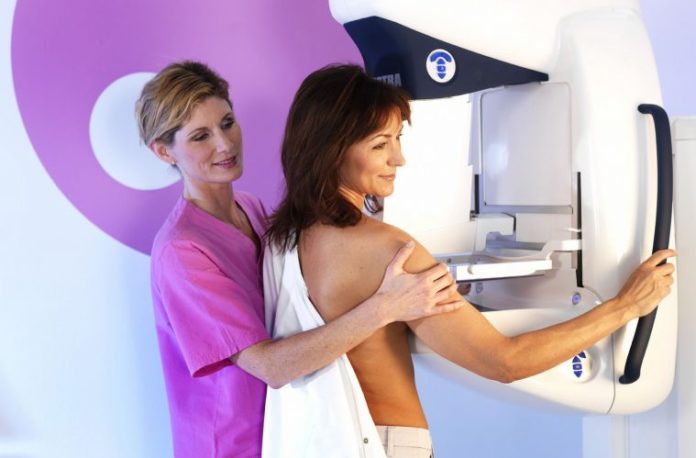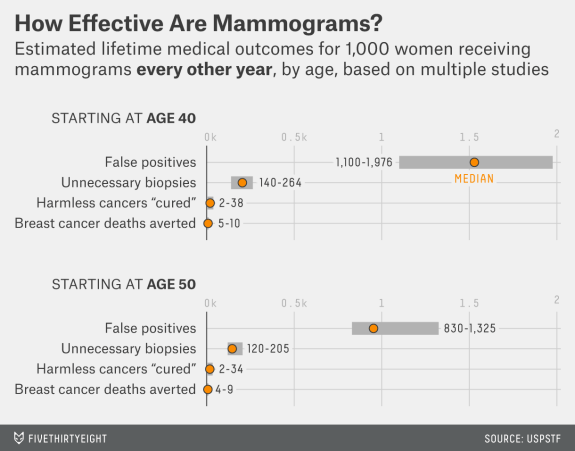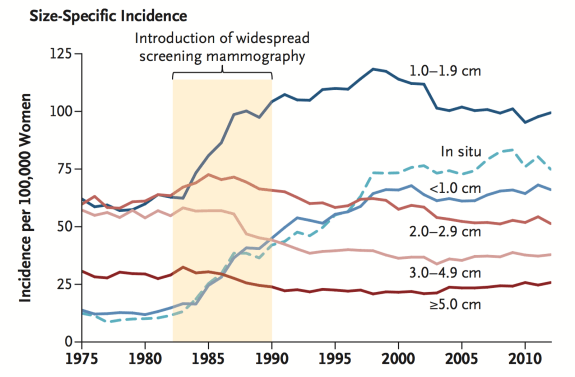
In 2016, an estimated 246,660 new cases of invasive breast cancer, 61,000 new cases of non-invasive breast cancer, and 40,450 breast cancer deaths are expected to be recorded in the United States alone. With the rising rates of breast cancer, mammography has gained popularity globally as the most effective screening technique to detect the most common cancer among women.
I believe that if you did have a tumor, the last thing you would want to do is crush that tumor between two plates, because that would spread it. — Dr. Sarah Mybill, General Practitioner
Centers for Disease Control and Prevention insists mammograms are the best way to find breast cancer early, when it is easier to treat and before it is big enough to feel or cause symptoms. Having regular mammograms can lower the risk of dying from breast cancer, claims the leading national public health institute of the United States.
I think if a woman from the age of 50 has a mammogram every year, or every two years, she’s going to get breast cancer as a direct result from that. — Dr. Patrick Kingsley, Clinical Ecologist
This, despite the fact that the World Health Organization’s International Agency for Research on Cancer (IARC) recently excluded mammography for women under 50 – based on scientific evidence of limited efficacy in reducing breast cancer mortality for women between 40 and 49 – the IARC working group further noted that early detection of breast cancer through mammography screening have important harmful outcomes such as false positive results, over-diagnosis, over-treatment and radiation-induced cancer.
In 2013, a review of 8 trials involving more than 600,000 women in the age range 39 to 74 years discovered no evidence to establish mammography screening is effective on overall mortality.
“If we assume that screening reduces breast cancer mortality by 15% and that over-diagnosis and overtreatment is at 30%, it means that for every 2000 women invited for screening throughout 10 years, one will avoid dying of breast cancer and 10 healthy women, who would not have been diagnosed if there had not been screening, will be treated unnecessarily.”
In 2014, a review of mammography screening by a team of medical professionals (including a medical ethicist, a clinical epidemiologist, a pharmacologist, an oncologic surgeon, a nurse scientist, a lawyer, and a health economist) from the Swiss Medical Board, the Swiss Medical Association, and the Swiss Academy of Medical Sciences found no evidence to indicate that the benefits of mammography screening outweighed the harms.
“For every breast-cancer death prevented in U.S. women over a 10-year course of annual screening beginning at 50 years of age, 490 to 670 women are likely to have a false positive mammogram with repeat examination; 70 to 100, an unnecessary biopsy; and 3 to 14, an over-diagnosed breast cancer that would never have become clinically apparent.”
Radiologists of the 2014 Canadian National Breast Screening Study — conducted to compare breast cancer incidences and mortality up to 25 years in women aged 40-59 who did or did not undergo mammography screening — also concluded that “annual mammography in women aged 40-59 did not reduce mortality from breast cancer beyond that of physical examination or usual care when adjuvant therapy for breast cancer was freely available”. Overall, 22% of healthy women in the screening group (involving 90,000 women) were diagnosed with and treated for breast cancer unnecessarily, they found.
Based on a population sample of 1.8 million Norwegian women, diagnosed with breast cancer between 1987 and 2010, a study titled Trends in breast cancer stage distribution before, during and after introduction of a screening program in Norway found mammography screenings significantly increased incidence of localized stage cancers without reducing the incidence of advanced cancers.
A study published recently in The New England Journal of Medicine added to a growing body of evidence that for every woman helped by a mammogram screening for breast cancer, many more have been harmed. Using data from the Surveillance, Epidemiology, and End Results (SEER) program from 1975 through 2012, a team of international cancer researchers concluded that women were more likely to have breast cancer that was over-diagnosed, than to have earlier detection of a tumor that was destined to become large.
“[Mammography] Screening did result in more cancers being detected, but the data suggests that only about 30 of the 162 additional small tumors per 100,000 women that screening mammograms found would ever have progressed to a dangerous stage. That means that 132, or 81 percent, of the 162 extra tumors detected represented “over-diagnosis” — the discovery and treatment of tumors that were never destined to harm.”
With a plethora of studies confirming that mammography has been oversold and has failed to protect women against breast cancer, will the medical community and women at large now question its efficacy?
This article (Surgeons Admit Mammography is Outdated, Harmful at Best) is a free and open source. You have permission to republish this article under a Creative Commons license with attribution to the author and AnonHQ.com.







Anyone who wants to get a real education, instead of the official disinformation, on mammography ought to read ‘Mammography Screening: Truth, Lies and Controversy’ by Peter Gotzsche and ‘The Mammogram Myth’ by Rolf Hefti. You can decide for yourself after reading these works if you still believe in the classic lies about mammography the huge criminal medical business has been indoctrinating people with for aeons.
These two extensive independent investigations reveal to anyone that contrary to the official narrative (which is based on medical business-fabricated pro-mammogram “scientific” data), there is marginal, if any, reliable evidence that mammography, both conventional and digital (3D), reduces mortality from breast cancer in a significant way in any age bracket but a lot of solid evidence shows the procedure does provide more serious harm than serious benefit.
IF…….. women (and men) at large were to examine the mammogram data above and beyond the information of the mammogram business cartel (eg American Cancer Society, National Cancer Institute, Komen), they’d also find that it is almost exclusively the big profiteers of the test, ie. the “experts,” (eg radiologists, oncologists, medical trade associations, breast cancer “charities” etc) who promote the mass use of the test and that most pro-mammogram “research” is conducted by people with massive vested interests tied to the mammogram industry.
Most women are fooled by the misleading medical mantra that early detection by mammography saves lives simply because the public has been fed (“educated” or rather brainwashed) with a very one-sided biased pro-mammogram set of information circulated by the big business of mainstream medicine. The above mentioned two independent investigative works show that early detection does not mean that there is less breast cancer mortality.
Because of this one-sided promotion and marketing of the test by the medical business, women have been obstructed from making an “informed choice” about its benefits and risks which have been inaccurately depicted by the medical industry, favoring their business interests.
I have only ever had one mammogram, and that was enough to convince me that I would not be going back. If you want to avoid cancer, live clean, eat clean and think clean.